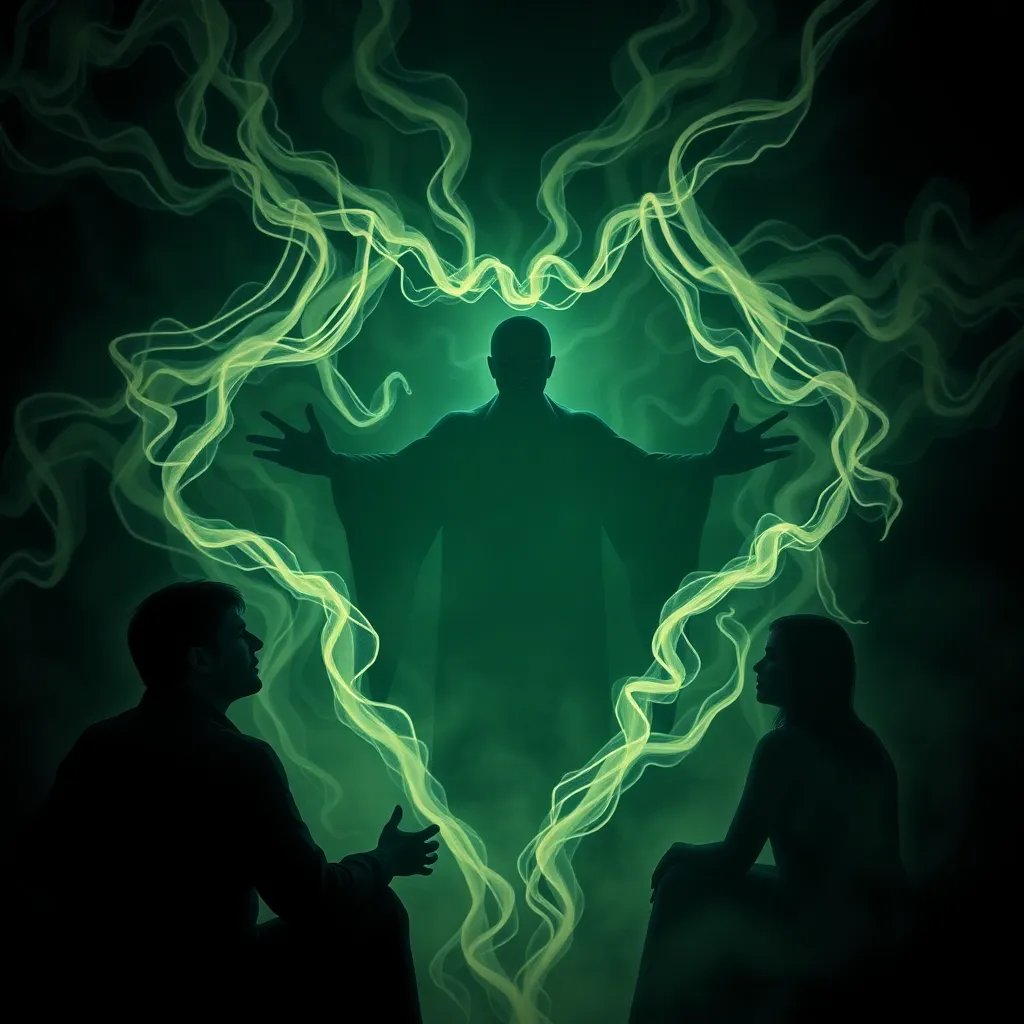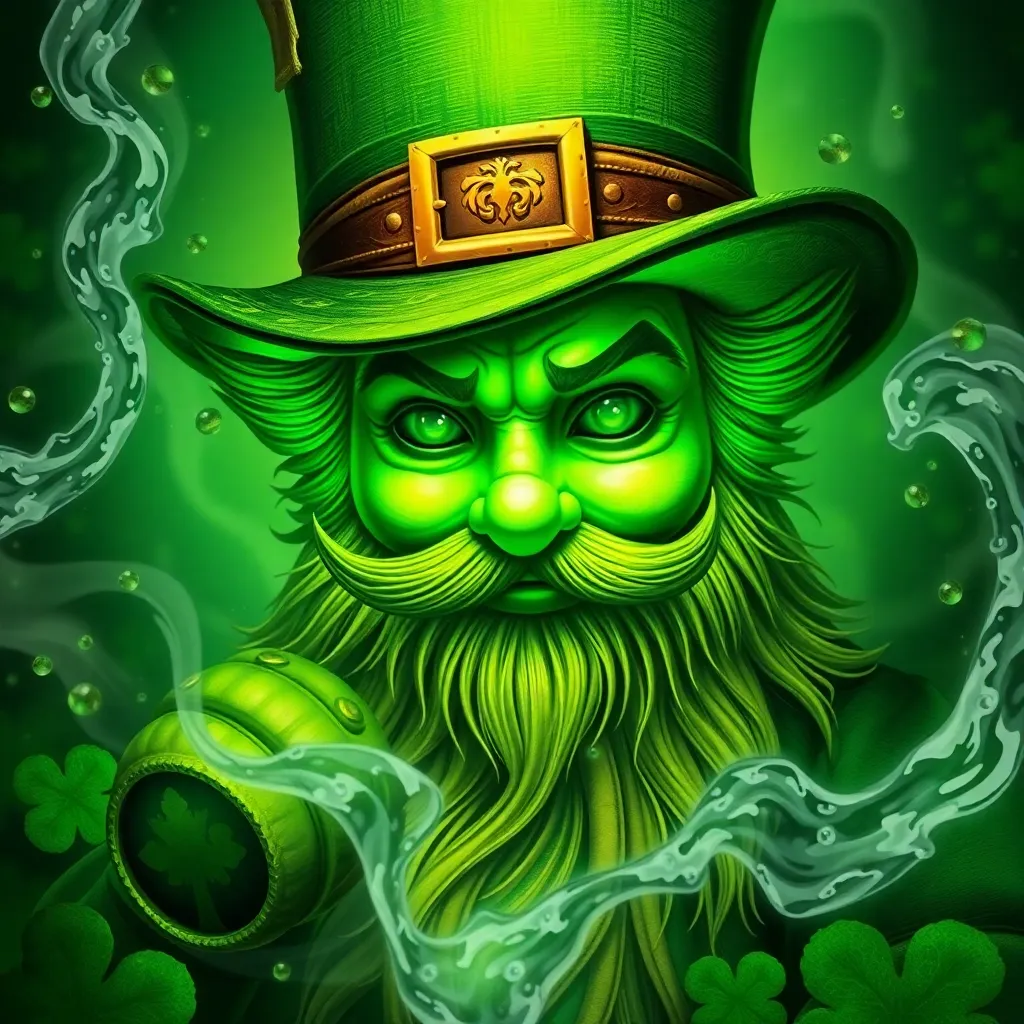The Psychology of Possession: Exploring the Dybbuk’s Influence on Human Behavior
I. Introduction
A Dybbuk, rooted in Jewish folklore, is often described as the restless spirit of a deceased person that attaches itself to the living, causing them to exhibit peculiar behaviors and psychological disturbances. This concept of possession raises intriguing questions at the intersection of folklore, culture, and psychology.
In psychological literature, possession themes are explored as manifestations of deep-seated fears, traumas, and inner conflicts. Understanding the dynamics of possession can help illuminate the complexities of human behavior and mental health. This article delves into the Dybbuk’s influence on human psychology, examining its historical context, metaphorical significance, and contemporary interpretations.
II. Historical Context of the Dybbuk
The Dybbuk myth traces its origins back to 16th-century Jewish mysticism, particularly within the Kabbalistic tradition. The term itself is derived from the Hebrew word “dibbuk,” meaning “to cling” or “to attach,” which aptly describes the essence of this phenomenon. Over centuries, the story of the Dybbuk has evolved, becoming a symbol of unresolved conflict and spiritual turmoil.
In Jewish tradition, the Dybbuk holds significant cultural importance as it embodies the struggles between the spiritual and physical realms. It reflects the fears and beliefs surrounding death, the afterlife, and the consequences of unresolved sins. Comparatively, possession myths are prevalent in various cultures worldwide, such as the idea of “spirit possession” in African and Caribbean religions, or the concept of “demonic possession” found in Christianity. Each culture offers unique interpretations and responses to possession, highlighting the universal nature of this phenomenon.
III. Psychological Interpretations of Possession
Psychological literature offers several theories regarding possession, ranging from spiritual interpretations to more clinical understandings of mental health issues. Some psychologists view possession experiences as manifestations of dissociative disorders, where individuals may disconnect from their sense of self due to trauma or stress.
- Spiritual Possession: This perspective emphasizes the influence of supernatural forces on an individual’s behavior.
- Psychological Possession: This view interprets possession as a symptom of mental illness, such as schizophrenia or dissociative identity disorder.
Case studies of individuals claiming possession experiences often reveal a complex interplay of psychological and cultural factors. For instance, some individuals report episodes of lost time, altered identities, or sudden shifts in personality, prompting debates about the nature of these phenomena.
IV. The Dybbuk as a Metaphor for Inner Conflict
The Dybbuk serves as a powerful metaphor for inner conflict and psychological strife. In various literary and artistic interpretations, the Dybbuk embodies themes of repression, trauma, and unfulfilled desires. It signifies the presence of unresolved issues that cling to an individual, affecting their mental and emotional well-being.
- Symbolism in Literature: Authors like S. Ansky, in his play “The Dybbuk,” use the Dybbuk to explore themes of love, loss, and existential despair.
- Psychological Interpretations: Psychologists often analyze the Dybbuk as a representation of repressed emotions and unresolved conflicts, suggesting that the spirit’s presence reflects the individual’s internal struggles.
Through this lens, the Dybbuk is not merely a supernatural entity but rather a representation of the human condition, revealing the complexities of emotional and psychological turmoil.
V. The Role of Community and Social Dynamics
Beliefs in possession, including those surrounding the Dybbuk, are profoundly influenced by social context and community dynamics. The perception of possession can vary significantly based on cultural background, community beliefs, and social norms.
- Social Context: In communities with strong religious or spiritual beliefs, possession may be viewed as a genuine phenomenon, leading to collective responses such as exorcisms or rituals.
- Group Psychology: Collective experiences of the Dybbuk can create a shared narrative within communities, reinforcing beliefs and influencing individual behaviors.
Community responses to alleged possession cases often involve a combination of support and scrutiny, reflecting broader societal attitudes towards mental health and spiritual beliefs.
VI. The Modern Psychological Perspective
Contemporary views on possession and mental health have evolved significantly, with many psychologists recognizing the role of culture in shaping beliefs about mental illness. Diagnostic criteria now account for cultural variations in expressions of distress, emphasizing the importance of context in understanding psychological phenomena.
- Diagnostic Criteria: The DSM-5 (Diagnostic and Statistical Manual of Mental Disorders) provides guidelines for understanding various mental health conditions, including those that may resemble possession.
- Cultural Integration: Some therapists integrate folklore, such as the Dybbuk, into their practices as a means of connecting with clients on a cultural level, fostering understanding and healing.
This modern psychological perspective encourages a holistic approach to mental health, recognizing the interplay between cultural beliefs and psychological well-being.
VII. The Dybbuk in Popular Culture
The Dybbuk has found its way into popular culture, influencing various forms of media, including film, literature, and theater. Its representation often taps into universal themes of fear, loss, and the unknown.
- Film and Literature: Movies like “The Possession” and plays such as “The Dybbuk” reflect contemporary interpretations of this ancient myth, often blending horror with psychological drama.
- Influence on Horror Narratives: The Dybbuk’s haunting qualities have shaped modern horror narratives, reinforcing public fears and interests in possession themes.
Public perception of the Dybbuk can influence beliefs about mental health and possession, creating a complex relationship between folklore and societal attitudes.
VIII. Conclusion
In summary, the Dybbuk serves as a profound symbol at the intersection of folklore and psychology, offering insights into human behavior, trauma, and the complexities of mental health. By exploring the Dybbuk and its influence on individuals and communities, we gain a deeper understanding of the psychological underpinnings of possession.
As we continue to investigate the connections between folklore and psychology, future research may uncover new dimensions of understanding, particularly in how cultural narratives shape our perceptions of mental health and human experience.



